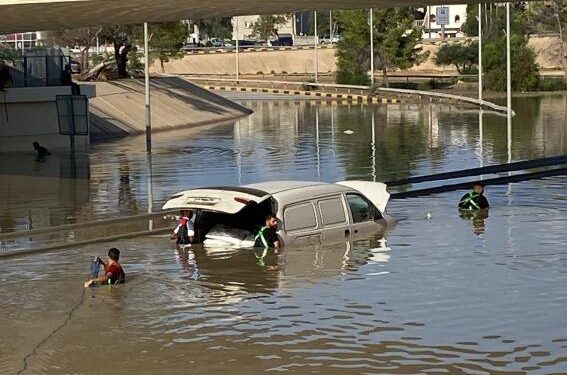The UN World Meteorological Organization (WMO) said Thursday September 14 the use of advance warning systems would have lessened the casualties and damage caused by the recent devastating floods in Libya that killed at least 6,000 people, “Libya Update” reports.
“If there had been advance warning, we could have avoided most of the human casualties in Libya,” Petteri Taalas, the WMO’s Secretary-general, told reporters in Geneva where he presented the “United in Science 2023” report.
With properly functioning systems, “they could have issued the warnings and the emergency management forces would have been able to carry out the evacuation of the people,” he added.

Taalas said economic loss due to the floods is unavoidable but could have been minimized if the North African country had had proper services in place.
Most parts of Libya’s eastern regions were battered by torrential rains over the last week-end.
While some press report say the rains caused the death of at 6,000 people mostly in the cities of Derna, Benghazi, Al-Bayda, Al-Marj, and Soussa, other sources, including the Libyan Red Crescent, say the death toll in the coastal city of Derna has soared to 11,300 as search efforts continue following the massive flood fed by the breaching of two dams in heavy rains.
Marie el-Drese, the secretary-general of the International Organization for Migration (IOM), said a further 10,100 people are reported missing in the Mediterranean city. Health authorities previously put the death toll in Derna at 5,500 and at about 170 people elsewhere in the country.
Between 1.5 to 1.8 million people have been reportedly affected by the floods. The United Nations this week launched a donation campaign: “Response to Libya Floods,” to raise $10 million to be allocated to help those affected by the floods in the country.









